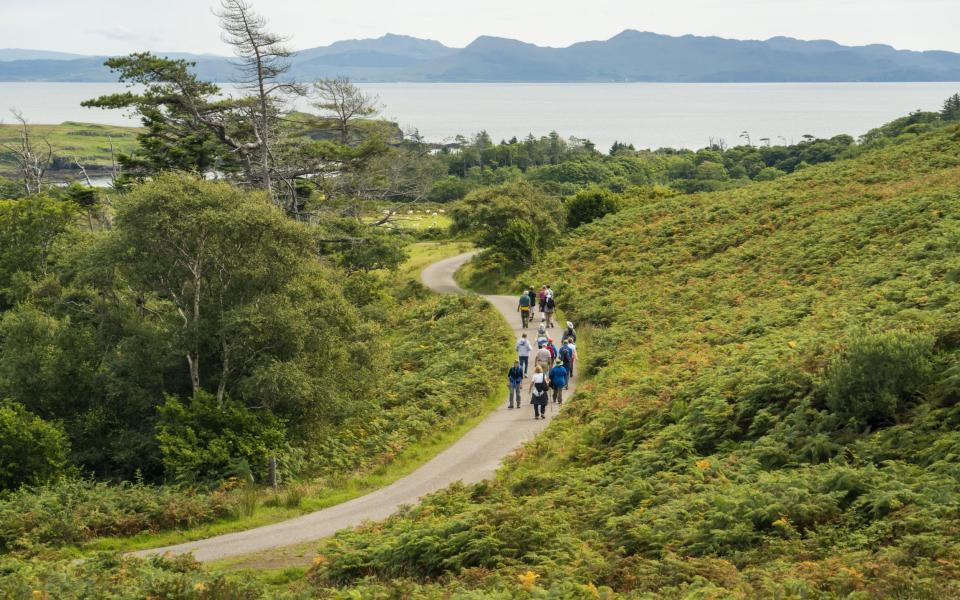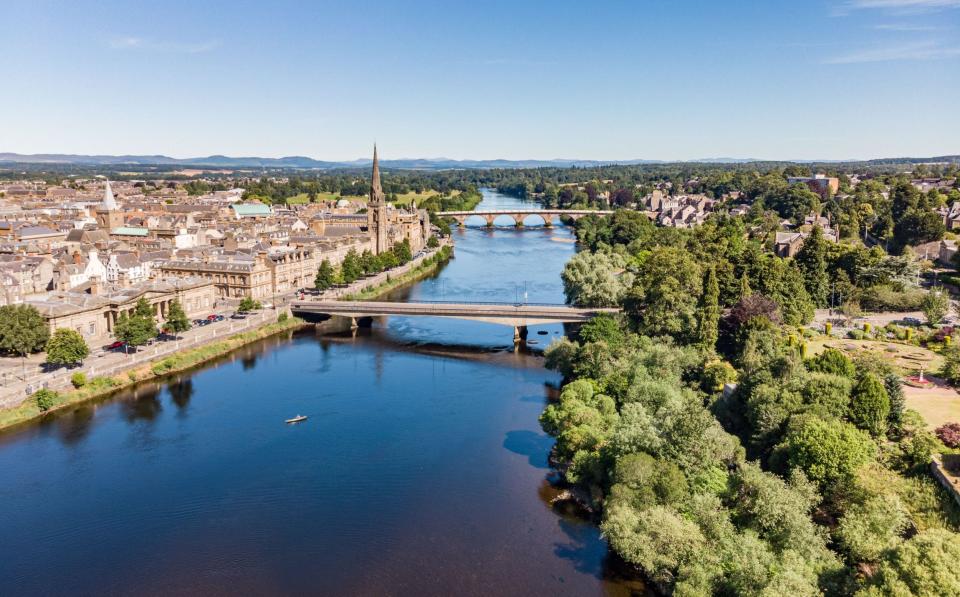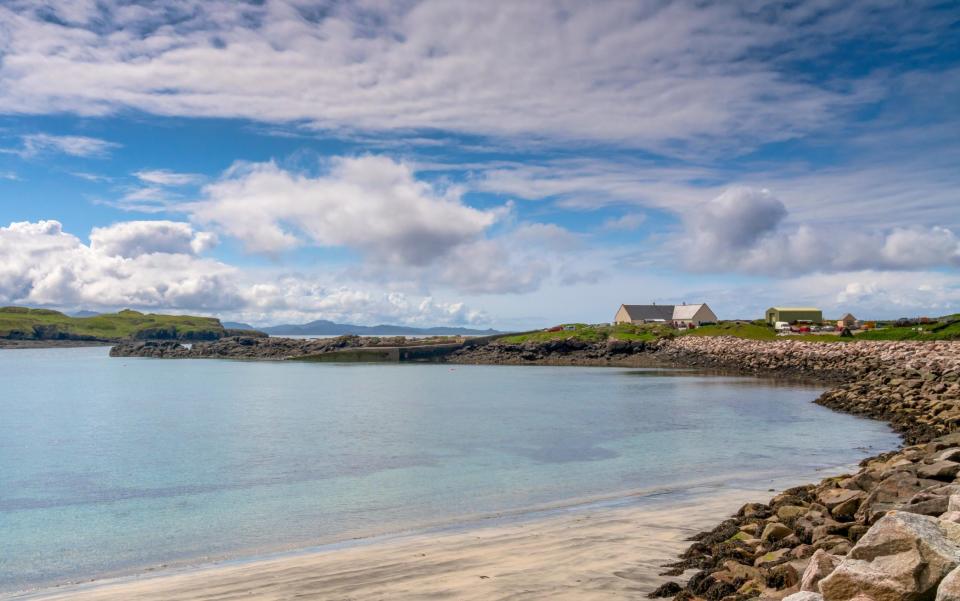It’s true – Scots really are the most welcoming people on the planet

The news that Scotland’s Perthshire has topped a Booking.com list of the world’s “most welcoming” regions may surprise anyone tangled in perceptions that Scotland – and indeed us Scots – can be unwelcoming and unfriendly. Whisper it, even a little dour. So what is the reality for visitors beyond the bagpipes and the political bluster on both sides of the border?
Working as a travel writer for over two decades, making 30-40 trips a year (the majority always around Scotland), I’m not remotely surprised by the news. Glasgow was named the world’s friendliest city in 2022 after all; Kirkwall one of the UK’s friendliest towns last year.
Scotland has always looked beyond its borders – with a global diaspora, in part due to the Highland Clearances, of around 20 million, we’ve had to – and in turn has welcomed the world. Glasgow’s “Refuweegee” scheme is a striking example. Indeed, my English wife has “never had a single issue in this country” in 20 years. I checked last night as I’d never thought to ask her before. For balance I asked a Welsh and a Northern Irish mate as well. We’re all good there too.
So where does any unwelcoming perception come from? In part, I blame Taggart. Not just him, but the succession of hard-nosed Scottish cops/soldiers/lovers that blight TV and film. Scots in fiction – and indeed in fact – are often portrayed in stereotypical terms (being “tight” is another). We are the other; easier to characterise than take seriously. One English pal living here controversially opines it’s a defence mechanism that allows the people doing it to avoid questions about their own identity. He also took ownership of the dourness – he hails from Lancashire.

I do hear some grumblings from visitors on the road, but it is usually in indistinct terms. Not hard actual examples of being thrown out of Highland hotels by hairy Highlanders, or refused an artisan gin because you’re actually glad England won the World Cup in 1966. It is more in terms of “that Salmond” or “that Sturgeon”.
Yes we’ve finally mentioned the tartan-clad elephant in the room – independence. I can see how continued support for Scottish nationalism can be mistakenly conflated with perceptions of how welcome the English are. Without taking sides on independence, I think that is perhaps because people don’t understand the nationalism I see here in person is not the hate-spitting one some people outside Scotland seem to think it is.
It’s a desire, yes, to control Scotland’s own affairs, but one that’s rooted in internationalism (Scots after all voted against leaving the EU) – not one driven by hate. And we’re a canny country too, so even the most passionate supporter of independence will still gladly take your tourist pound.
On the road around Scotland for 20 years, I constantly witness positive hospitality in action, and it’s not just a cheery smile from behind the bar. You’ll realise we’re remarkably positive if you’ve read the preachings of our other national bard, John Knox. Scotland offers a welcome and continued goodwill that has Americans, Canadians and most nationalities waxing lyrical. Without the population pressures of England’s South, people, especially outside Scotland’s eight cities, have more time for you – and visitors appreciate that.

It’s a symbiotic relationship, of course, as Scotland needs tourism – it’s one of our biggest industries. And it’s a golden grouse that we cannot afford to take for granted. The Covid staycation boom did cause tensions, tensions that new initiatives like community-tourism project Scoto are working to ease. The idea is that you are welcome as a “temporary local”. You invest your cash in community-run businesses and make time for people; in return they do the same for you and will try to help you in every way they can. That is Scottish hospitality and personality at its best.
For an example of how friendly and un-dour Scotland is, let’s take a closer look at the world’s most welcoming region: Perthshire.
If anyone should be dour and grumpy it is Perthshire, as it is Scotland’s only landlocked region. That has not stopped a flood of accolades over the years – Perth was the UK’s first “Cittaslow” and in 2020 snared the title of Scotland’s happiest city. No wonder as it’s a region of scarcely unbelievable abundance. Scenically, Perthshire is alive with soaring Munros, the country’s mightiest river (the Tay) and shimmering lochs. The local beef and lamb are world-class, as are the salmon, trout and soft fruits. And distilleries abound in the glens.

I’m smiling now running through a vivid mental reel of positive experiences I’ve had in Perthshire. And not just at five-star hotels like Gleneagles, but also the bus driver who continued beyond the end of his route to let me off, and the whitewater rafting guide who realised he needed to gee up mum and dad as much as the wee ones on a dreich kayaking trip. At its best a Perthshire (and wider Scottish) adventure is a seamless life-affirming game of tag, where you’re passed from one positive experience to the next. One minute you’re trusting the guide to secure you as you whirl off a bungee jump, the next disappearing into a Highland cliché with a dram by a roaring fire.
A new Perth Museum opens this Easter, with the star exhibit the iconic Stone of Destiny, on which Scotland’s monarchs were crowned until Edward I nicked it in 1296. Scotland has moved on. The stone was returned home from Westminster Abbey in 1996 and, bearing no grudge, Scotland lent the stone back last year for the coronation of King Charles III. Well, what else would you expect from this most welcoming of countries?
Three ways to experience a warm Scottish welcome
A good Eigg
This glorious island shows the life-affirming things that can happen when locals take back control. Clean, green community-owned Eigg bounces with life thanks to residents who hail from all parts of the UK and beyond. They’ve got their own brewery, record label and a sparkling new community shop/café where you’ll be welcomed like an old friend. Next door, Welshman Owain is on hand to rent you an e-bike so you can explore the sweeping hills, white-sand beaches and wildlife of this real-life Treasure Island. See isleofeigg.org.

Whisky Galore
Forget Speyside, the island of Islay is the must-visit for whisky fans. The industry is booming and there will soon be 14 distilleries on the “Queen of the Hebrides”. A warm welcome awaits at each, with tours, restaurants and creative tasting experiences; you are guaranteed to leave happy. See islayinfo.com.
Toast Hogmanay
This is the big one. Edinburgh grabs all the headlines with its multi-day Hogmanay extravaganza and its massive street party and concerts. The fire festivals at Comrie and Stonehaven meanwhile offer a literal warm welcome. It took my English wife years to fully understand that to many Scots Hogmanay is bigger than Christmas. See visitscotland.com.

